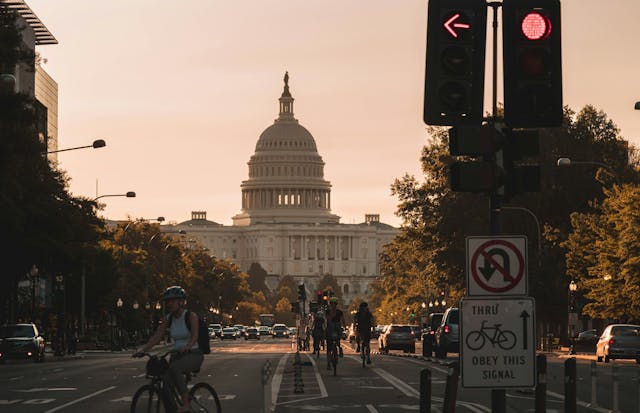Not Dire, For Now: California Expects $26 Billion Windfall Despite Pandemic

The good news: The recession California officials predicted in the early months of the coronavirus pandemic has not been as dire as they thought it would be, leaving the state with a $26 billion windfall heading into the next fiscal year.
The bad news: A reason for the unanticipated cash reveals the state’s stark economic divide. Pandemic-induced job losses have been concentrated among low-wage workers, who pay relatively little taxes to begin with, while wealthy residents have continued to make money and pay taxes, leading to much greater tax collections than officials predicted in early summer.
“We’re ending up in a place where the overall fiscal picture of the state doesn’t look nearly as bleak as the conditions for the people who are weathering the pandemic and all of its negative effects,” said Chris Hoene, executive director of the California Budget and Policy Center.
“It’s a very weird situation.”
That was the picture that emerged Wednesday as California’s nonpartisan Legislative Analyst released an annual forecast that lawmakers will use in crafting next year’s state budget. The report precedes Gov. Gavin Newsom’s January budget proposal, which kicks off months of negotiations with the Legislature.
Though the windfall will likely make some of their decisions easier, the report also came with a warning: California is heading toward a $17 billion deficit in three years because expenses are growing faster than revenue. That leaves lawmakers with two politically unappealing choices: make ongoing spending cuts or raise taxes.
“While the budget is better off than we had feared several months ago, deficits are still on the horizon, and better-than-expected revenues haven’t translated into an economy that’s fully rebounding,” Newsom’s finance spokesperson H.D. Palmer said in a statement.
“The state’s 11 percent unemployment rate in September is still nearly three times its rate before the pandemic, and more than one in every five California workers are receiving some form of unemployment assistance.”
Legislative leaders were quick to say they hope to use some of the windfall to restore cuts made in this year’s budget. That could include restoring $602 million to universities, reversing the roughly 10% pay cut state workers took, and canceling plans to delay some payments to schools and suspend some programs for people who are elderly and developmentally disabled. They also suggested using some of it to repay recent borrowing, prepare for emergencies and help people who don’t have homes.
“California is the fifth largest economy in the world, the cutting edge, but we have people hurting,” said state Senate leader Toni Atkins, a San Diego Democrat.
A forecast showing strong state finances likely sounds jarring to millions of Californians who are out of work, or strained by having their children home from school, or whose businesses have suffered from government-ordered shutdowns, Atkins said: “Not everybody feels this forecast. They don’t feel it personally.”
Assembly Speaker Anthony Rendon said he agreed with Atkins’ priorities and also plans to push for a budget that allows schools to reopen safely, ensures distribution of a COVID vaccine when it becomes available and improves the Employment Development Department, which has been plagued with problems in the crush to distribute unemployment checks to millions of people.
Republicans hold so few seats in the Legislature — about one-fourth — that they are essentially powerless in shaping the state budget. Still, GOP Sen. Jim Nielsen of Tehama urged his Democratic colleagues to be prudent, saying “This is the right time to reverse the state’s borrowing from schools, replenish the Rainy Day Fund, pay down debt, and invest in struggling Californians.”
Illustrating the extremely unpredictable nature of the pandemic-era economy, the Legislative Analyst described how several factors combined to lead to the estimated $26 billion one-time surplus:
- Californians paid more taxes than officials projected.
- Unemployment did not get as bad as predicted.
- Fewer people than the state budgeted for sought government-funded health care and food assistance.
- The California-based tech industry is doing very well during the pandemic, contributing to a strong stock market.
“Many of us thought that state revenues were headed for a plunge in response to the severe economic pullback and COVID-19 pandemic,” Legislative Analyst Gabe Petek told reporters in a video conference call.
“But as it turns out, revenues have proven to be much more resilient. And as a result of that — the difference between what the budget assumed and this more steady performance of the state tax revenues — we see a very large revenue windfall taking shape.”
He cautioned, however, that it remains difficult to predict economic conditions over the next year, given massive unknowns that could shape state finances for better or worse. Those include how bad the virus gets, how soon a vaccine becomes widely available and whether the federal government passes another stimulus package.
“Because of that uncertainty… this $26 billion windfall could be anywhere from $12 billion all the way up to $40 billion,” Petek said. “And that’s just within sort of what we consider a more likely range of outcomes.”
Translation: For California’s finances, the unpredictable nature of 2020 is poised to continue in 2021.
CalMatters.org is a nonprofit, nonpartisan media venture explaining California policies and politics.



